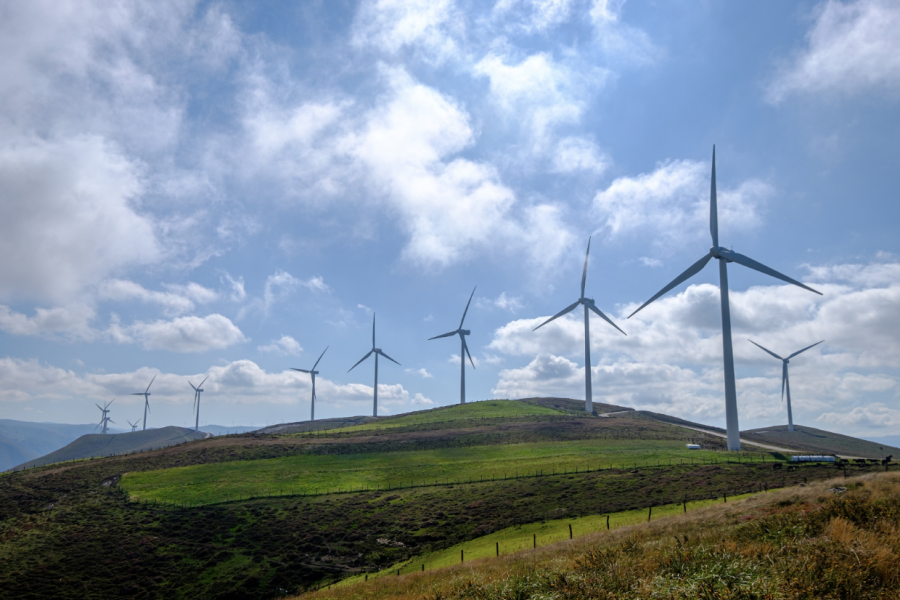Photo used with permission from David de la Iglesia Villar/New Civil Engineer
Climate change is one of the most pressing issues the world is confronted with today, and stopping the detrimental effects it has on the environment is vital. Thus, the U.K. must transition to renewable energy sources.
OPINION: UK must transition to green energy
As energy prices in the U.K. have reached record highs, consumers are struggling to cope with rising costs and alternative energy sources for their households, according to Carbon Brief. The main driver of skyrocketing energy prices is the Russia-Ukraine conflict.
Russia, previously the world’s largest exporter of gas, has cut off most of their natural gas exports to most European countries. Even though the U.K. previously imported little natural gas directly from Russia, the U.K. was affected by the shrinking global supply of gas prices which left the country vulnerable to rising gas prices.
Though many nations utilize natural gas, 85% of households in the U.K. use gas to heat their homes and it is the biggest source of electricity generation, according to Carbon Brief. The high reliance on gas for energy usage has exposed the U.K. to volatile price movements and has left British households paying eye-watering prices to heat their homes.
Not only is natural gas expensive, but it also contributes to climate change by emitting greenhouse gasses, according to METGroup. The combustion of natural gas also reduces air quality. Climate change is one of the most pressing issues the world is confronted with today, and stopping the detrimental effects it has on the environment is vital.
As nations fear the worsening effects of climate change, many countries, including the U.K., have pledged to reach net zero gas emissions by 2050, according to GOV.uk. Even though the U.K. only accounts for 1% of global annual CO2 emissions, reaching the net zero goal will improve air quality within the country, reduce energy costs for consumers and set an example for other nations to follow.
Gradually, Britain must stop relying on imports for their energy supply. According to The Spectator, 38% of the U.K.’s energy supply is imported. In an ideal scenario, Britain should be a net exporter of energy, not a net importer.
Gradually, Britain must stop relying on imports for their energy supply.
Being a net exporter of energy leaves the U.K. immune to volatile prices, recently seen from the effects of conflict. Net exporting will ensure U.K. households do not pay record prices for their energy bills, ultimately leaving Britain in a robust economic position.
For Britain to stop relying on imports for their energy supply, it must produce energy locally. To reach net zero emissions by 2050, the U.K. must offset its CO2 emissions. Thus, natural gas and coal are not options for long-term energy sources, meaning we are left with renewables and nuclear energy.
According to the UN, renewable energy utilizes energy from natural resources such as sunlight and wind. These resources are also replenishable, unlike fossil fuels which have a finite supply.
Though renewable energy sources seem independent, they are susceptible to environmental changes, such as a lack of wind power and sunshine. That is where nuclear energy comes in. According to the U.S. Department of Energy, nuclear energy is three times more reliable than wind and solar plants, which compromise most of the U.K.’s renewable energy sources.
Furthermore, nuclear power reactors do not emit CO2 emissions, ensuring it is environmentally friendly. If nuclear energy is produced locally in the U.K., it will also cost consumers less as the country’s energy supply will be self-sufficient.
Achieving net zero emissions by 2050 is a daunting task. However, this leaves the U.K. with ample time of nearly three decades to achieve this goal. According to The Spectator, in 1996, 41% of the U.K.’s total energy generated was sourced from coal, the most damaging fossil fuel.
In less than three decades, the U.K.’s total energy generation from coal is currently at 2%. Britain has shifted their energy sources before, and in a world with immense support for eradicating fossil fuels for energy use, the U.K. can undoubtedly transition to locally producing green energy by 2050.


